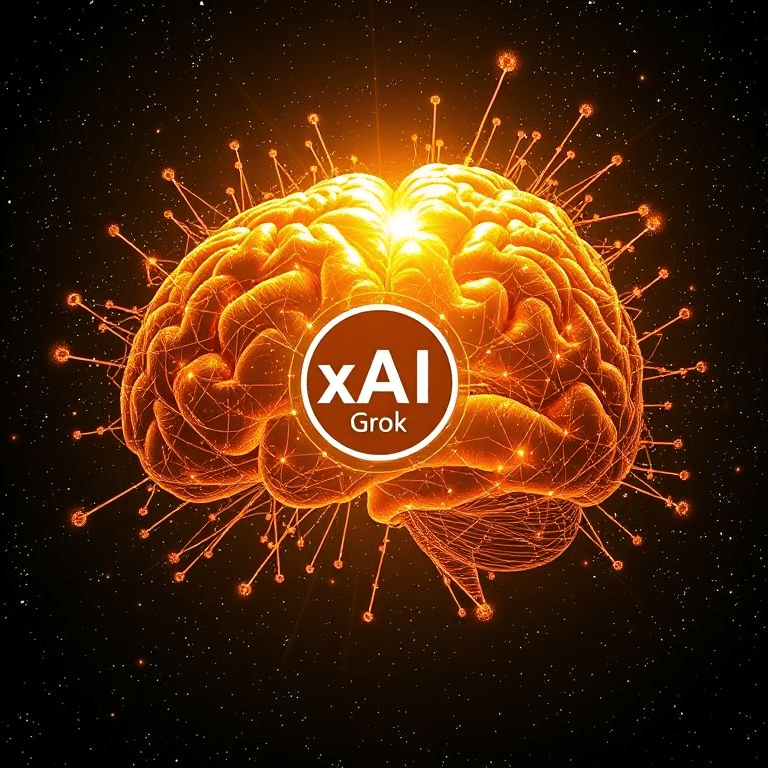Introduction: A Historic Step for European AI
The European Union has announced the creation of a €2 billion Artificial Intelligence Innovation Fund, a landmark initiative designed to strengthen Europe’s global competitiveness in AI research, startups, and industry adoption. Revealed in Brussels on September 23, 2025, the fund aims to provide financial backing to innovative startups, research institutions, and cross-border projects that prioritize both technological advancement and ethical development of AI.
This move comes at a critical time when global AI investment is dominated by the United States and China. The EU hopes to position itself as a third powerhouse, leveraging its values-driven approach to innovation—balancing growth, ethics, and regulation.
Why the EU Is Betting Big on AI
Artificial intelligence is rapidly becoming the backbone of economic growth, with transformative applications across healthcare, manufacturing, finance, defense, education, and public services. According to a McKinsey Global Institute report, AI could add up to $4.4 trillion annually to the global economy by 2030.
However, Europe has often lagged behind the U.S. and China in terms of funding scale, startup growth, and talent retention. By introducing a €2 billion AI innovation fund, the EU hopes to:
- Retain AI talent within Europe, preventing “brain drain.”
- Support AI startups at seed, Series A, and growth stages.
- Accelerate ethical AI development, ensuring compliance with the upcoming EU AI Act.
- Encourage cross-border research collaborations between universities and industries.
- Reduce reliance on non-EU technologies and strengthen sovereignty in digital infrastructure.
How the €2 Billion Fund Will Be Distributed
EU officials confirmed that the fund will operate under a multi-channel financing framework, combining direct grants, venture capital support, and public-private partnerships. The allocations are expected to follow these guidelines:
- 40% (€800 million): Startup Investments
Direct capital injections into AI-driven startups working on generative AI, robotics, climate-tech AI, and healthcare AI solutions. - 30% (€600 million): Research Grants
University-led projects, collaborative research centers, and ethical AI initiatives will receive grants to scale their innovations. - 20% (€400 million): Cross-Border Infrastructure
Funding for supercomputing, AI testing facilities, and open data platforms across EU member states. - 10% (€200 million): Education & Workforce Training
AI-focused training programs, reskilling courses, and scholarships to build the next generation of AI talent in Europe.
European Leaders Speak Out
Mariya Gabriel, EU Commissioner for Innovation, Research, and Education, called the initiative a “historic moment for European innovation.” She emphasized that Europe must not only invest in AI but also define the global standard for responsible AI development.
Meanwhile, Thierry Breton, EU Commissioner for Internal Market, highlighted that the fund complements the EU AI Act, ensuring that growth and regulation go hand in hand:
“With this investment, Europe shows it can be both ambitious and responsible. We are not just catching up—we are setting the rules for the future of AI.”
Reactions from Startups and Industry
The announcement was met with widespread optimism in Europe’s tech community. Many startups, particularly in Germany, France, Sweden, and the Netherlands, see the fund as a lifeline to help them scale operations without relocating to the U.S. for funding.
- Anna Müller, CEO of Berlin-based AI health startup Mediscan, said:
“The EU fund could be the difference between scaling in Europe versus seeking U.S. investors. It shows the government is finally serious about supporting AI entrepreneurs.” - Olivier Lefèvre, a French robotics entrepreneur, stressed the importance of venture capital support:
“We don’t just need grants—we need venture capital, mentorship, and infrastructure. If this fund delivers on those promises, Europe can truly compete.”
The Role of the EU AI Act
The timing of the innovation fund is strategic. The EU AI Act, the world’s first comprehensive AI regulatory framework, is set to come into effect in early 2026. This legislation classifies AI systems into risk categories (minimal, limited, high, and unacceptable) and sets clear compliance rules.
By pairing the innovation fund with regulation, the EU is creating a balanced AI ecosystem—one that promotes growth while minimizing risks such as bias, discrimination, and misuse of AI in sensitive fields like surveillance.
Global Comparisons: How Does the EU Measure Up?
To put this investment in perspective:
- United States: In 2024, U.S. AI startups attracted over $67 billion in private funding. The White House also announced a $25 billion AI research initiative.
- China: The Chinese government and private sector together invest an estimated $50+ billion annually into AI.
- European Union: While €2 billion is smaller in absolute terms, the EU’s fund focuses heavily on sustainable, ethical, and cross-border collaboration, making it unique compared to the purely capital-driven models elsewhere.
Experts argue that while Europe may not match U.S. and Chinese spending dollar-for-dollar, its regulatory leadership and values-driven innovation could set a global precedent.
Challenges Ahead for the EU AI Fund
Despite the excitement, several challenges remain:
- Speed of Deployment – Historically, EU funds have been slow to distribute, frustrating startups that need rapid capital.
- Fragmentation – With 27 member states, ensuring equal and fair distribution across countries will be complex.
- Talent Drain – Even with funding, Europe must compete with the higher salaries offered by Silicon Valley and Chinese tech giants.
- Scalability – European startups often struggle to scale globally due to fragmented markets and linguistic diversity.
Addressing these issues will determine whether the fund achieves its full potential.
Expert Outlook: A Step Toward AI Sovereignty
Industry analysts see the fund as part of a larger strategy for AI sovereignty—Europe’s ambition to maintain independence in key technologies.
Dr. Elena Rossi, an AI policy researcher at Oxford University, commented:
“This fund is about more than money. It’s about Europe securing its place in the AI race while promoting ethical standards. The question is whether the EU can execute quickly enough to make a difference.”
Future Outlook: What’s Next?
The €2 billion fund is only the beginning. EU officials have hinted at additional investments in semiconductors, quantum computing, and cybersecurity, which are critical to supporting AI infrastructure.
If successful, the fund could:
- Create thousands of AI-focused jobs across Europe.
- Propel European AI startups to unicorn status.
- Cement the EU’s role as a global leader in ethical AI governance.
Conclusion
The launch of the €2 billion AI Innovation Fund is a turning point for Europe’s digital future. While challenges remain, this bold step signals the EU’s determination to compete globally—not only by funding innovation but also by setting the ethical boundaries for artificial intelligence.
As AI reshapes the world, Europe is making a statement: innovation and responsibility can go hand in hand.







